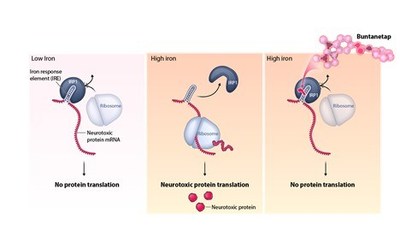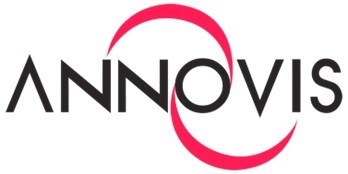Annovis Bio's CEO Maria Maccecchini Issues Letter to Stockholders
On September 8, 2022, Annovis Bio (NYSE: ANVS) CEO Dr. Maria Maccecchini shared insights regarding the clinical drug buntanetap, emphasizing its impact on various neurodegenerative diseases beyond Alzheimer's. Buntanetap inhibits neurotoxic proteins causing cellular damage due to iron overexpression. It has shown promise in animal models and human trials, demonstrating significant improvements in motor functions for Parkinson's patients and cognitive function for Alzheimer's patients. The company aims to address unmet needs in neurodegenerative treatment.
- Buntanetap shows promise in treating multiple neurodegenerative diseases, including Alzheimer's and Parkinson's.
- Recent Phase 2 trials demonstrated statistically significant improvements in cognition for Alzheimer's and motor function for Parkinson's patients.
- The drug was well-tolerated and met both primary and secondary endpoints in clinical trials.
- None.
Insights
Analyzing...
BERWYN, Pa., Sept. 8, 2022 /PRNewswire/ -- Annovis Bio, Inc. (NYSE: ANVS) ("Annovis" or the "Company"), a late-stage clinical drug platform company addressing neurodegenerative diseases, today released the following letter to stockholders from its Chief Executive Officer Dr. Maria Maccecchini.
Dear Fellow Stockholder,
Over the years we have been talking about the potential of buntanetap to treat more than Alzheimer's disease. In cell models, animal models and human clinical studies, we have seen that buntanetap works in numerous acute and chronic neurodegenerative conditions. I would like to take this opportunity to explain how one drug can be so broadly applicable.
Buntenatap works by inhibiting specific neurotoxic proteins such as amyloid precursor protein (APP), Tau, alpha-synuclein (αSYN), TAR DNA binding protein 43 (TDP-43), huntingtin (HTT) and prion protein. These proteins have normal functions but in their neurotoxic aggregating form, they impair axonal transport, slow synaptic transmission, cause inflammation, and ultimately, kill nerve cells, resulting in the loss of affected function in various neurodegenerative conditions.
The overexpression and aggregation of these proteins is caused by elevated levels of iron in the nerve cell. The mRNAs of neurotoxic aggregating proteins contain an iron response element (IRE) which binds to an iron regulatory protein called IRP1. At normal iron levels, translation occurs at appropriate physiological levels. When iron flows into the cell, the mRNAs are released and translated at higher rates by the ribosome. When massive iron flows in, the mRNAs remain unbound for as long as the iron is high and the proteins for these neurotoxic aggregating proteins are overexpressed. In this high iron situation, buntanetap binds to the atypical IRE-IRP1 complex and prevents the mRNA from being released and, therefore, from being translated and overexpressed.
Buntanetap is able to inhibit the translation of multiple neurotoxic proteins through this mechanism of action, and as a result has the potential to treat numerous acute and chronic neurodegenerative conditions that share this pathway. In mouse or rat models of Alzheimer's, Parkinson's, stroke, frontotemporal dementia, traumatic brain injury, glaucoma, and Down Syndrome, buntanetap has been shown to normalize the levels of these neurotoxic proteins and to restore function.
Most importantly, this has been demonstrated in human clinical trials. In our recent Phase 2 clinical trial in Alzheimer's disease and Parkinson's disease, treatment with buntanetap resulted in reduction of aggregating proteins and statistically significant improvement in motor function in Parkinson's disease patients and cognition in Alzheimer's disease patients.
FUNCTION | TEST | SUBJECT |
ANIMALS | ||
Memory, learning | Mazes | AD mice, DS mice, stroke mice, TBI rats |
Movement | Colonic motility, grip strength | PD mice, tau mice |
Vision | Sight | Glaucoma rats |
Infections | Cell death | P. Gingivalis mice, Covid mice |
HUMANS | ||
Cognition, memory, learning | ADAScog11 | Early AD patients |
Attention, thinking speed | WAIS coding | Early AD patients |
Movement, coordination | MDS-UPDRS | Early PD patients |
Movement speed | WAIS coding | Early PD patients |
Table 1: Summary of all animal and human study data. | ||
We look forward to unlocking the full potential of buntanetap and addressing unmet needs across a range of acute and chronic neurological conditions.
Maria L. Maccecchini, Ph.D.,
Founder, President, CEO and Executive Board Member
About Buntanetap
Buntanetap (previously known as ANVS401 or Posiphen) is an oral translational inhibitor of neurotoxic aggregating proteins (TINAPs), which mode of action leads to lower levels of neurotoxic proteins and consequently less toxicity in the brain. In a Phase 2a clinical trial in AD and PD patients, treatment with buntanetap resulted in statistically significant improvement in motor function in PD patients and cognition in AD patients. Additionally, the drug was well-tolerated and safe, and its pharmacokinetics were found to be in line with levels measured earlier in humans, meeting both the primary and secondary endpoints.
About Annovis Bio, Inc.
Headquartered in Berwyn, Pennsylvania, Annovis Bio, Inc. is a late-stage clinical drug platform company developing transformative therapies that treat neurodegenerative disorders such as Alzheimer's disease (AD), Parkinson's disease (PD) and other chronic and acute neurodegenerative diseases. The Company believes that it is the only company developing a drug that inhibits more than one neurotoxic protein, improves the information highway of the nerve cell, known as axonal transport, reduces inflammation and protects nerve cells from dying in chronic and acute neurodegeneration. Annovis conducted two Phase 2 studies: one in AD patients and one in both AD and PD patients. In the AD/PD study, buntanetap showed improvements in cognition and memory in AD as well as body and brain function in PD patients.
For more information on Annovis Bio, please visit the Company's website www.annovisbio.com and follow us on LinkedIn and Twitter.
Forward-Looking Statements
Statements in this press release contain "forward-looking statements" that are subject to substantial risks and uncertainties. Forward-looking statements contained in this press release may be identified by the use of words such as "anticipate," "expect," "believe," "will," "may," "should," "estimate," "project," "outlook," "forecast" or other similar words, and include, without limitation, statements regarding the timing, effectiveness, and anticipated results of buntanetap clinical trials. Forward-looking statements are based on Annovis Bio, Inc.'s current expectations and are subject to inherent uncertainties, risks and assumptions that are difficult to predict. Further, certain forward-looking statements are based on assumptions as to future events that may not prove to be accurate. These and other risks and uncertainties are described more fully in the section titled "Risk Factors" in the Annual Report on Form 10-K for the year ended December 31, 2021, filed with the Securities and Exchange Commission. Forward-looking statements contained in this announcement are made as of this date, and Annovis Bio, Inc. undertakes no duty to update such information except as required under applicable law.
Media and Investor Contact:
Nic Johnson
Russo Partners, LLC
(303) 482-6405
nic.johnson@russopartnersllc.com
![]() View original content to download multimedia:https://www.prnewswire.com/news-releases/annovis-bios-ceo-maria-maccecchini-issues-letter-to-stockholders-301620142.html
View original content to download multimedia:https://www.prnewswire.com/news-releases/annovis-bios-ceo-maria-maccecchini-issues-letter-to-stockholders-301620142.html
SOURCE Annovis Bio










